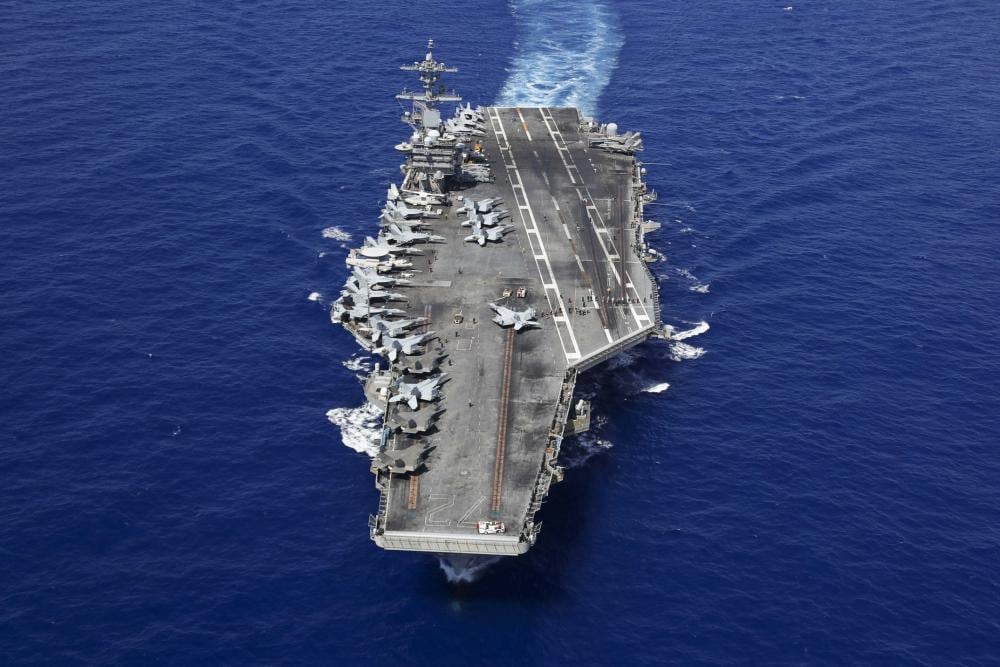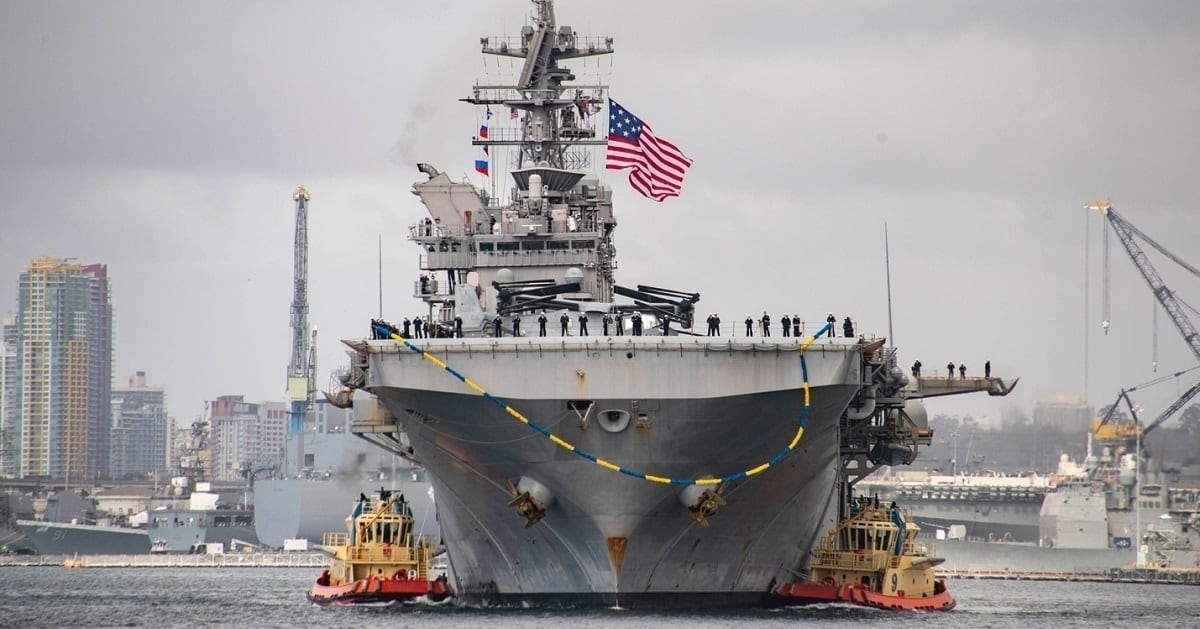The amphibious assault ship Tripoli is having problems with its onboard drinking water system, but officials have declined to fully explain the nature of the problem or why a ship commissioned in 2020 is grappling with such issues.
Expeditionary Strike Group 3 spokeswoman Lt. Cmdr. Lauren Spaziano said that the issue did not impact the Tripoli during its seven-month, maiden deployment. However, the ship is now encountering problems that limit its ability to generate potable water due to ongoing repairs to some reverse osmosis water units.
“USS Tripoli has a reduced ability to produce its own potable water underway while repairs are made to the reverse osmosis water purification units,” Spaziano said in a statement to Navy Times Wednesday. “There are no concerns with the quality of water being produced when underway.”
Spaziano did not say what precisely had gone wrong with Tripoli’s water system, and it’s unclear when the issue will be resolved.
“The ship is currently in port and has full access to potable water while connected to the pier,” Spaziano said. “Tripoli is scheduled for an extensive maintenance period in the near future, and repairs to the reverse osmosis water purification units are in progress. There is no impact to Sailors.”
The ship returned to San Diego from its initial deployment last month and, while pierside, participated in Steel Knight 2023, an exercise that targeted maneuver warfare tactics and command and control capabilities.
News of Tripoli’s water problems come after the aircraft carriers Nimitz and Abraham Lincoln both encountered issues with their potable water systems this fall.
RELATED

In September, the Nimitz encountered a jet fuel leak into its potable water system, prompting the ship to return from a pre-deployment cruise in the Pacific Ocean and a flushing of the ship’s water system. Jet fuel was first detected Sept. 16, and the ship returned to sea Oct. 2.
That same month, bilge water contaminated one of the Lincoln’s potable water tanks via a hole in a tank’s vent line, according to Naval Air Forces.
Officials have declined to further explain what led to the water contamination on both carriers.
During its first deployment across the Pacific Ocean, the Tripoli conducted maritime security operations, and provided theater security cooperation and crisis response. The ship deployed with 16 F-35Bs, which flew operations supporting exercises Valiant Shield 22 and Noble Fusion.
“I am proud of Tripoli for a successful first deployment,” Rear Adm. James Kirk, commander of Expeditionary Strike Group 3, said in a statement. “The ship and crew are on the leading edge, setting the example and testing the limits of the assault ship. LHAs are designed to support the future of the Marine Corps Air Combat Element, and Tripoli has done just that. I am excited to see what else they can bring to the fight.”




